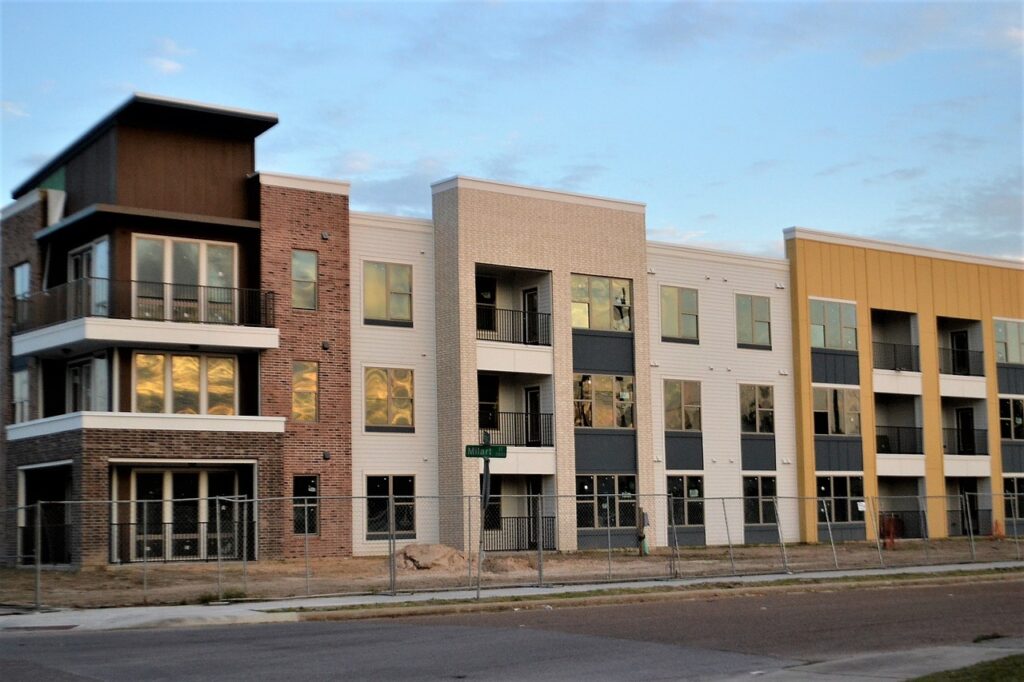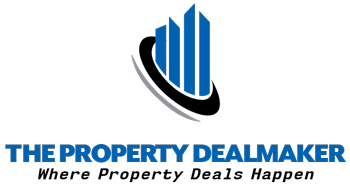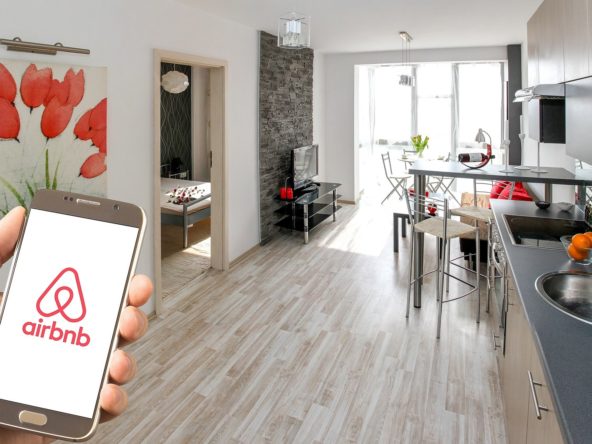Investing in property can be very lucrative, but navigating the market requires more than just an eye for potential.
Finding the true value of a property is crucial for making informed investment decisions and securing your financial future.
However, with so many factors at play and various valuation methods in the mix, the process can feel daunting, especially for new investors.
Fear not though!
This guide will be your compass, simplifying the different methods used to value properties in South Africa.
We’ll delve into the three main approaches: the Sales Comparison Approach, the Cost Approach, and the Income Capitalization Approach, explaining each method’s strengths and limitations.
But we won’t stop there!
We’ll also explore the unique considerations specific to the South African market, from micro-location nuances to legal and economic factors.
By the end, you’ll be equipped with the knowledge and confidence to understand property valuations, make informed investment choices, and unlock the true potential of your real estate journey.
The Property Investors Toolbox: The 3 Methods To Find The Value Of A Property
Now that we’ve established the importance of accurate property valuation for South African investors, let’s unpack the three main approaches that form the foundation of this important step in the property investing process:
1. Sales Comparison Approach (Market Data Approach):
Imagine you’re at a flea market, haggling over a vintage camera.
To assess its value, you wouldn’t compare it to a brand-new smartphone, right?
The same logic applies to property valuation.
This approach compares your “subject property” to recently sold similar properties, known as “comparables.”
Think of it as finding your property’s twin in the recent market history.
The closer the match in terms of location, size, condition, amenities, and recent sale price, the more accurate the valuation.
Popular online resources and professional appraisers can help you identify these key comparables.
Or you can use tools like Lightstone to purchase (inexpensive) area reports so you can find property sales in that area and compare those figures to the property you plan on buying.
Pros: Easy to understand, widely used, readily available data.
Cons: Relies on finding truly comparable properties, may not reflect unique features or recent market shifts.

2. Cost Approach (Replacement Cost Approach):
Now, imagine that vintage camera is damaged beyond repair.
This approach takes a different perspective, estimating the cost to rebuild the property from scratch using current construction materials and labor costs.
Think of it as a “brand new” valuation, factoring in depreciation and land value.
This method shines for unique properties or new developments where comparable sales data might be scarce.
However, it doesn’t consider market demand or potential rental income, making it less relevant for income-generating properties.
Pros: Useful for unique properties or new developments.
Cons: Ignores market demand and income potential, construction costs can fluctuate.
3. Income Capitalization Approach:
Let’s shift gears to a rental property, whether it’s commercial or residential.
This approach flips the script, valuing the property based on its income-generating potential.
Imagine you’re buying a block of flats for rental purposes.
This method estimates the property’s value based on the expected rental income, minus operating expenses, and then applies a “capitalization rate” to convert that income into a present value.
Think of it as valuing the property based on its ability to generate future cash flow.
This method is ideal for income-producing properties but requires accurate income projections and is sensitive to changes in market rents and interest rates.
Pros: Useful for income-producing properties, considers income potential.
Cons: Requires accurate income projections, sensitive to market fluctuations.
In the next section, we’ll delve deeper into the nuances of each method, equipping you with the knowledge to interpret and apply them effectively in the South African property market!

Additional Considerations for Property Valuation
While the three core approaches provide a solid foundation, understanding the South African market’s unique characteristics is crucial for a comprehensive valuation.
Here are some key factors to consider:
Micro-location matters: While similar properties in the same city might seem comparable, the specific neighborhood or development can significantly impact value.
Proximity to amenities, schools, and public transport, as well as crime rates and noise levels, all play a role.
Economic factors: Interest rates, inflation, and overall economic stability influence market trends and property values.
Understanding these macro-economic factors will help you adjust your valuation based on current and projected market conditions.
Supply and demand: The balance between available properties and buyer interest in a specific area impacts prices.
Research local market reports and consult professionals to gauge the dynamics of supply and demand for your target property type.
Legal and regulatory hurdles: Zoning restrictions, title deed limitations, and potential environmental concerns can affect property value and development potential.
Consult a lawyer familiar with real estate law to ensure a clear understanding of any legal roadblocks.
The value of expertise: While understanding the different valuation methods empowers you, don’t underestimate the value of a qualified professional appraiser/valuer.
They possess the experience, data access, and market knowledge to provide a comprehensive and customized valuation, tailored to your specific property and investment goals.
Normally we calculate “desktop valuations” to estimate a property’s value, but when a more accurate valuation is needed, we make use of professional property valuers
Remember, property valuation is not an exact science, but an informed art.
By combining your newfound knowledge of the three core approaches, a keen awareness of the market, and the expertise of a qualified professional, you can navigate the world of property investment with confidence and make informed decisions that pave the way for your financial success.

Case Study: Unveiling the Value of a Johannesburg Block Of Flats
Let’s put our newfound knowledge into action with a case study!
Imagine you’re considering investing in a 10-unit apartment building in Johannesburg’s trendy Melville neighborhood.
Here’s how we can apply the different valuation methods:
1. Sales Comparison Approach:
- Identify similar apartment buildings in Melville that recently sold.
- Compare factors like size, condition, amenities, and location.
- Adjust for any significant differences, like renovations or unique features.
- This method gives you a starting point based on recent market activity.
2. Cost Approach:
- Estimate the cost to rebuild the building with current materials and labor.
- Factor in depreciation and land value.
- This method provides insights into the intrinsic value of the property, independent of market trends.
3. Income Capitalization Approach:
- Analyze the current and projected rental income for each apartment unit.
- Calculate operating expenses (maintenance, taxes, etc.).
- Apply a capitalization rate based on similar income-generating properties in Melville.
- This method estimates the property’s value based on its ability to generate future income.
By combining these approaches and considering the South African market nuances, you can arrive at a well-rounded valuation of the apartment building. Remember, this is just a simplified example. Consulting a professional appraiser for a customized valuation is highly recommended.
Bonus Tip: Download our FREE property valuation Ebook to guide you through the key factors to consider when valuing any property in South Africa!
Glossary of Terms:
- Capitalization Rate: The rate used to convert future income into a present value.
- Comparables: Similar properties recently sold in the same market.
- Depreciation: The decrease in value of a property over time due to wear and tear.
- Micro-location: The specific neighborhood or development where a property is located.
- Operating Expenses: The ongoing costs associated with owning and operating a property.
In Closing: How To Find The Value Of A Property Investment
Your journey into South African property investment might seem confusing at first, but with the right tools and knowledge, you can navigate it with confidence and make informed decisions that propel you towards your financial goals.
This guide has equipped you with a comprehensive understanding of the three core property valuation methods: the Sales Comparison Approach, the Cost Approach, and the Income Capitalization Approach.
You’ve also gained valuable insights into the unique considerations of the South African market, from micro-location nuances to legal and economic factors.
Remember, while these methods are powerful tools, utilizing the expertise of a qualified professional appraiser is highly recommended.
Their in-depth market knowledge and data access can ensure a comprehensive and customized valuation specific to your investment target.
By combining your newfound knowledge with professional guidance and thorough research, you can unlock the true potential of each property you consider.
Don’t forget to download your bonus ebook to keep this valuable information at your fingertips.
So, step into the world of property investment empowered by knowledge, armed with valuable tools, and ready to make informed decisions that pave the way for a successful and rewarding journey.
Remember, the key to success lies in understanding the market, mastering the art of valuation, and seeking expert guidance when needed.
Happy investing

Aslam is from Johannesburg, South Africa and graduated with a BComm degree from the University of South Africa and followed that up with a BComm Hons degree in Finance and Investments.
He has spent over 18 years in the financial services sector, with 12.5 years in the commercial property finance arena with 3 of the major banks in the country.
His specialty being deal structuring and finance solutions for commercial property investors and developers across the commercial property sector, including large scale retail developments, high density residential investments , industrial and office property.
Aslam was also a fast food franchise investor for 7 years, is experienced in digital marketing and online lead generation and has owned and managed multiple residential properties.





